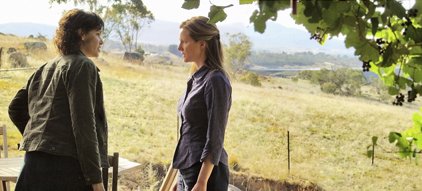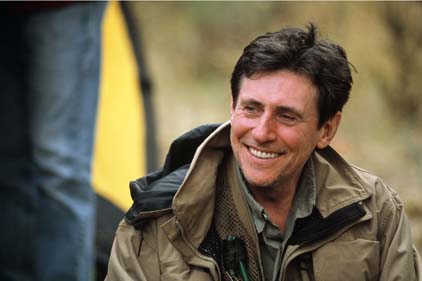LITTLE ROCK — Good writing is rarely well served by translation to film. Cadence and rhythm and the friction of word on word get lost in the camera's well. Visual storytelling is so different from literature - we see through another's eyes rather than visit another's mind - that hack novels are as likely to produce good films as are better books. Some writers, like Stephen King and John Grisham, are essentially cinematic in their approach, while others - James Joyce, Saul Bellow - are so concerned with interior life that filming their stories isn't so much impossible as beside the point.
Raymond Carver, the master minimalist, might seem a writer whose work might be safely transposed to film, for there's not a lot of internal muttering in his work; his characters mainly speak and act. At times Carver seems to skim across the surface of the toxic swamps in which he submerges his characters.
Movie
Jindabyne
<p>Grade: 88 <br />Cast: Laura Linney, Gabriel Byrne, Simon Stone, Leah Purcell <br /> Director: Ray Lawrence <br /> Rating: R for disturbing images, nudity, language </p>
Ray Lawrence's Jindabyne is the first major attempt at filming Carver since Robert Altman beaded a bunch of his stories together in Short Cuts. While Altman was more or less content to present Carver's material unadorned, Lawrence and screenwriter Beatrix Christian have expanded Carver's 10-minute read "So Much Water So Close to Home," faithfully sketched in Short Cuts, into a full-fledged movie.
The result isn't Carver at all but a serviceable film that allows actors like Laura Linney and Gabriel Byrne ample space to do what they do well, to fret and smolder and flash murderous looks across the dinner table. Lawrence (Lantana, Bliss) likes to work fast and shoot with natural light, techniques that lend a documentary-style verisimilitude to the proceedings.
Byrne plays Stewart Kane, an Irishman living in the small Australian town of Jindabyne on the brink of wilderness. Linney is his American wife, Claire. They appear to be as happy as any other working class couple (Stewart runs a gas station, Claire works in a pharmacy) in their remote corner of the world; they have their circle of friends and littlepleasures.
Among these is a much-anticipated annual stag party ("no women allowed")/fishing trip Stewart and three mates embark on. After arriving at their destination, they find their sacred space has already been despoiled by femininity in the form of the floating nude body of a young aboriginal. While the notion of hiking back and notifying authorities is raised, the men quickly decide that the unlucky girl is beyond help and the sensible thing to do is to tie her to a tree to prevent her floating away. Fish first, police later.
This notion of masculine incorrigibility and petulance is a key theme in the movie. Claire's Americanism isn't stressed by Lawrence, but it seems to account for her reflexive feminism and reluctance to stand completely by her man in wake of the public relations nightmare that occasions Stewart's return to town. ("We don't step over bodies to enjoy our leisure activities," a policeman scolds.)
Lawrence and Christian do some things beautifully - questions of race and class and identity swirl up naturally out of the dust - while overplaying only a few cards. (Claire's truculence with her mother-in-law is a nice touch; the lurking presence of a serial killer might have had more power had it only been suggested.)
As a meditation on the corrosive power of male bonding, Jindabyne brings to mind an old song by Little Steven (Van Zandt) and the Disciples of Soul. In the second chorus, Tony Soprano's righthand man croons to his girl: "I do just what I want to do/ I want everything and I want you, too/I wish I could explain to you/But the things men without women do/You just don't understand."
That's even more succinct, and hardly less insightful, than Carver's story. Jindabyne is another way to sing it.
MovieStyle, Pages 47 on 06/29/2007

